|
5 stars
I loved everything about this debut. Generational bonds between the women in one family line tied into one horror-tinged speculative debut with Cree Canadian roots. Bad Cree snuck up on me. I saw the cover a few times in the store and it caught my eye. But I kept passing it by, until eventually I heard someone mention that it was a story about sisters and horror-based dreaming. Those two hooks grabbed me and i knew I needed to read this story. Mackenzie keeps waking up from the same dream. This in itself isn't that odd—but the fact that she wakes up with pieces of that dream in her hand, in the real world, is odd. From twigs to the decapitated head of a crow, Mackenzie knows that a) this isn't normal and b) things are getting worse. And she's getting scared. Her Cree family, with its deep roots to the Alberta land, are far away from Mackenzie's sad apartment in Vancouver. And Mackenzie realizes that maybe its time to face the sadness and secrets awaiting her in her hometown... Combining family secrets, Cree stories, and a persistent thread of endurance and love throughout, Bad Cree was a perfect read for me. I loved Mackenzie's journey. I was here for her pain, her grief, and her family's close bonds yet tangled relationships. Having such a strong novel about sisterhood tied to a speculative horror novel was a huge win for me. Bad Cree's accessible writing and creeping sense of atmospheric dread catapulted this immediately into a new favorite read. Come for the intrigue of the "real" dreams, stay for the tension and family story. This isn't a slasher horror, or even a big bang reveal—it's a small story with deep roots.
0 Comments
4 stars
This novel about an atmospheric, creepy island and the haunting revelations of buried angst and secrets ending in a gory finale isn't for everyone—but wow, this hit the spot for me! Atmosphere: ★★★★ Angst/Drama: ★★★★★ Horror elements: ★★★★ Plot: ★★ 1/2 Laney is a divorced teacher with a dead sister, a rich ex-husband, and a niece now under her care. Her ex-husband gifted her their rich island property in the middle of Lake Superior, and while Laney loves it to pieces, she doesn't have the money to pay for it alone—so she rents it out as an exclusive rental property for vacationers. She hates every moment of it, but there's no other choice. So when Laney receives a call from a renter that blood and scratches have been found in a closet, and pentagrams are all over the property, she's pissed. Someone's throwing a mean prank and now she's got to fix it before the property loses more revenue. Armed with her niece, Madison, and sheer will, Laney heads to the island. However, when she gets to the shore prior to heading over to Hemlock Island, Laney discovers quite the scene: her ex-husband, his sister and Laney's ex-best friend, and two other people from Laney's past that she'd much rather forget. With spooky shenanigans and sinister consequences awaiting them, the last thing Laney needs is this tangle of interpersonal drama. But it's too late, and now this motley crew finds themselves trapped on an island—and what they're about to find will change them forever. I would categorize this novel as one of those hybrid, in-between concepts. Not quite horror enough, not quite thriller enough, not quite interpersonal drama enough. And for the detail-oriented lovers, I can see the disappoint rearing its head from the very first few chapters. This is a novel based in action, dialogue, and tension. All taking place on a truly gripping island setting in Lake Superior on the Great Lakes. (Which is in my neck of the woods as a Michigan girl, so let's be real, this was a huge sell for me.) For me, a reader who loves drama, action, and clean prose focused on goals in her mystery/thrillers, Hemlock Island was a win. I loved the tension, the secrets bubbling to the surface, the surprises blatantly hidden and revealed at the proper times. This isn't a shocking whodunit, or whydunit, or even meant to be truly surprising/shocking—instead, I found the wins in Hemlock Island to be the sheer enjoyment of the unfolding story and the ruthless practicality of the characters faced with a horrifying scenario. Come for the creepy island. Stay for the creepy island + the politics of this twisted tangle of friends and lovers and enemies. 4 stars
Stripped to the essentials, crystalized characters and electric plot. What a novella. Pacing: ★★★★ Sense of horror: ★★ Charisma: ★★★★★ Some stories just have that "it" factor, you know? Goddess of Filth is one of those. A group of young women get together one night. They host a seance of sorts, inviting the "old gods" to join them. One of them does, and it possesses one of the young women. She writhes on the ground, totally unknown, and from that night on another being walks within her skin, showing itself with its caiman eyes (crocodile relative) and its odd ways. And when the young women/demonic hybrid starts to showcase disturbing trends of femininity and agency mixed with revengeful actions against those with deepest sins... Yeah. Things are about to get interesting. Goddess of Filth was a very unique novella with a simple pitch: Girl gets possessed. But then, with its bare-bones writing style mixed with a blend of the macabre and the mundane, this novella shone. I found myself gripped, wanting to know what would happen and how it would go down. Super unique. Looking forward to exploring more from this author and more short horror from Creature Publishing. 4 stars
Loved the concept, loved most of the execution—I think this debut slightly fumbled the landing. BUT that being said, the vibes and concept were enough to keep this a personal favorite. Concept: ★★★★★ Plot/Pacing: ★★★ Enjoyment: ★★★★ Imagine this: You visit an island. Something is off about it. The people are nice, albeit your standard rural area standoffish vibe. The island itself is a beautiful piece of land off the coast of Northern Wisconsin. But there's something about these people—their clothes are dated, their cars are all rust buckets, their music is 20 years out of date. And weirdest of all... you can't find anything more tech savvy than a Walkman and a boom box. You realize the town is acting like it's 1994. And when you catch some members of the town captivated by seemingly "live" coverage of OJ Simpson's car chase in California—and then you catch them watching it multiple nights in a row—you realize something is seriously, seriously weird here. Because the entire town KNOWS it's not actually 1994. But they're acting out the scenario anyway. And then you find out that people sometimes disappear. Welcome to Clifford Island. You might not make it off... Dead Eleven is a horror release that I found out about randomly on Goodreads one day, and IMMEDIATELY knew that I needed to have it. From that pitch you just read, can't you see why?? What a concept. Layered into that killer concept was a mixed-media, brother/sister, and past/present timeline angle that I found too good to resist. So I bought this and read it almost immediately. Ultimately, I think this debut did a few things perfectly: the vibes, the lingering/creeping dread, the pulse-pounding "I need to know what happened" element that keeps you reading late into the night. Where this book fumbled was in the ending. I think it wasn't bad, but it wasn't as spectacular as its first half implied it would be. But then... maybe it will for you. Let me know! Eagerly looking forward to more horror mixed media from this author. 4 stars
What a cool, demonic sapphic noir! C.L. Polk always knows how to write the most intriguing worlds and yet keep them accessible to the casual speculative reader. Concept: ★★★★★ Characters: ★★★★ Plot/Pacing: ★★★★ First off, I must say that the Tordotcom publishing house has become unstoppable with their cover design and title choices recently. This cover + this title? It was screaming to be read. Helena Brandt is a magical woman living in Chicago in the mid-1900s. In this alternate-yet-similar America, magic and demons are all too real. And there are "good" magic users and "bad" magic users. Ten guesses as to what side Helena's been labeled... Yep, you were right: a "bad" magic user, or warlock in this world. Helena made one life-altering decision nearly 10 years ago, and the Brotherhood of good magicians cast her out for her sins. Ever since that fateful day, Helena's turned to a life of magical detective work and crime photography. But life isn't all roses and daisies for a female detective in 1940s Chicago. Especially for a queer one who doesn't stay in her lane. With enemies closing in, the law a constant threat, and an internal clock ticking ominously down to a very final end, the LAST thing Helena needs is to encounter the worst case of her detective career. She'd walk away from that job in a hot minute, but her boss offers her a deal that she just can't refuse... And now it's up to Helena to catch a killer before the deadly trap closes around her. Even Though I Knew the End was C.L. Polk at their finest. Complicated concepts done simply with accessible character development and dialogue. A fantastical world with the codes and dark sides of our real-world reality. And some very intriguing twists that feel simple and predictable...until they're not. I recommend this novella to anyone who enjoys historical noir, queer stories, demonic thrillers, and perfectly packaged short fiction. This was a fun ride! 3.5 stars
Classic K.J. Parker flair and wit! Not my favorite in his canon, but still a fun ride. Concept: ★★ Humor/Wit: ★★★★ Enjoyment: ★★★ I think it's no surprise that I'm a huge fan of K.J. Parker. Both Inside Man and Sixteen Ways to Defend a Walled City are some of my favorite books of all time--I can't seem to get enough of his wit and no-holds-barred sense of "you better keep up, because I'm not slowing down" energy. Pulling the Wings Off Angels had that classic wit and barreling-freight-train energy. What would you do if you found yourself caught in a theological paradox? Think chicken and the egg, but instead of farm animals we graduated right to the big guns: the existence and willpower of God. A clerical student grew up with the truth and lies surrounding his family name. If you believe the myth, he says, then you believe his grandfather trapped an Angel and thwarted the will of God. Despite being a supposed clerical student, our main character has always assumed that this was the myth, not the fact. Angels and God aren't actually real, right? Wrong. Said clerical student finds out the hard way that the unbelievable is possible, and the barometer of believability is much more suggestible and fragile than he imagined. Enter into the vortex with K.J. Parker and find yourself questioning everything and nothing at the same time... No matter what, you're always in for an experience. Like all of Parker's works, I find his unique writing voice and sharp wit truly one-of-a-kind. There really isn't another narrative voice out there that matches him. It's a dash of Pratchett, a splash of something sharper than Gaiman, and a heavy dose of... Parker. Pulling the Wings Off Angels was a truly fun ride. I will admit, I think it's one of my least favorites, but that's not saying much as I still enjoyed it. My personal lower rating is more to do with the subject matter and how heavy-handed the religious theme was in this novella more than anything else. (I can only handle so much theology and philosophical whirlpools.) K.J. Parker fans are already onto this novella, so my pitch here is for the newbies. If you like irreverent takes on religious, smart humor, and quick stories: pick this one up. Thank you to Tordotcom publishing for my copy in exchange for an honest review. 4 stars
A secluded lake. Death and secrets. And a house with glass walls hiding something sinister inside... Keep your eyes focused on the house across the lake. Plot/Pacing: ★★★★★ Characters: ★★★ Mystery(s)/Reveal(s): ★★★★★ Enjoyment: ★★★★ Casey Fletcher is at her family's lake house for the summer for a forced recuperation from the press. A character actress who has spent the past year burning down her life with alcohol and bad decisions, she's drinking her way through her own personal lockdown in rural Vermont. It's an interesting place for Casey to attempt to find her center, as it's the location of her husband's death by drowning. Grieving, drinking, and trying her best not to think about her past, Casey doesn't have much to do while sitting in the house by herself. So she watches the residents around the lake. In particular, there's a house across from hers with an entire side of glass windows facing the lake—and therefore facing her. At night, the lit-up box is like a real-life dollhouse complete with the movements of its two real-life inhabitants: tech mogul Tom Royce and his former model wife, Katherine. Casey witnesses some very odd things in the Royce house when no one is looking. And then Katherine disappears. With unsteady hands and yet a drive for the truth, Casey's decided she can't let this lie—what's happened to Katherine? And why is her husband, Tom, acting like nothing is wrong? Casey isn't prepared for the lid to blow off of Pandora's Box. But it's coming for her anyway. Be careful what you spy on... You might not like what you see. I think it's no secret that I am a huge fan of Riley Sager. Compulsively readable, engagingly paced, and ultimately fantastic fun, his stories are ones that I look forward to reading each year. His characters are the right level of flawed yet relatable. His plots veer from the mundane to the fantastical. And his settings drip with atmospheric tension. The House on the Lake delivered, again, another Sager hit. Without veering into spoiler territory, I really can't address the plot beyond what is mentioned above. I'd go into this story as blind as you can—it makes the ending more fun! I will say, the ending completely surprised me. I don't know if I read this on the right day or what, but that ending completely side-swiped me in left field as I confidently thought I had it all figured out. The surprise was a good one, for me, and I loved that the author caught me off my guard. The only thing that dragged this story down for me was the first half's pacing coupled with the heavy dose of Casey's alcoholism. Representation of her struggles was—to my limited knowledge—well done and accurate, but because the setting was so limited AND not much was happening beyond establishing the scene repeatedly, it made the alcohol references feel like they were repeating all over the place. I wish we'd had more going on in the early sections of the story to dilute that element of the plot. Overall, a fantastic read. Ready for the next one, Riley! 3.5 stars
I have never read a novel like this before. I have…feelings about it. Can you be repulsed and engrossed at the same time?? Concept: ★★★★★ Body horror: ★★★★★ My enjoyment: ★ I love body horror books. Or at least, I used to say that. I think Leech broke my brain and has redefined the threshold on which we determine "body horror" in the realm of medical trauma, consent, and what it means to be a person in, essentially, meat suits. If the phrase "meat suits" makes you uncomfortable, please take that as your cue to stop reading this review here—and to avoid this book. Leech is very hard to describe. I commend whoever was tasked with writing the blurb for the inside jacket... it couldn't have been easy. How does one describe a novel like this? Every monster is the hero of its own story... that could be said about this book. When our society collapses in on itself and future versions of humanity exist in a very bleak, grim, and macabre future... that could be said about this book. Let's combine the idea of parasites with a gothic, moldering castle and make it mentally insane... that could be said too. Leech has a LOT going on in its pages. It's dense by every meaning of the word-- paragraph-wise, character-wise, worldbuilding-wise, and horror-wise. It is a LOT. And it makes no apologies for being that way. (It doesn't have to apologize, but it could have done with a stronger warning label! Lol.) To say "I enjoyed this reading experience" would be a lie. I did not have a good time. I loved the first bit of the book a lot—it's confusing, but intriguing and interesting at the same time. I thought the middle was a very dense attempt at trying to figure out the setting, worldbuilding, and sense of pacing. It took me ages to get through the middle sections because it was terribly easy to put the book down and simultaneously very hard to reengage with it when I tried to pick it back up. The ending... was both absolutely horrifying to my personal reading tastes and also a wild trip into the ether in terms of character arc upheaval. If you've made it this far into my review, you might be wondering why I'm giving this novel a generous 4 stars despite being viscerally upset by its contents. I, too, am a bit confused by myself. But at the end of the day, I think the author deserves some very high praise for instilling such a unique concept into such a horrifying package that dealt with literally every single variant of medical body trauma that could possibly exist in our human minds. All of it. It's all here in this book. If, for some reason, you're not yet turned off from this book by my review, then I do recommend it. Hiron Ennes is an author to watch—they are doing very unique things in the horror space. Thank you to TOR for my copy in exchange for an honest review. 5 stars
A Clue-style haunted(?) mystery setting mashed with scintillating razor-sharp humor mashed with intricate puzzle-box plotting mashed with post-apocalyptic necromancy mashed with intergalactic space vibes mashed with death/not-death mashed with lesbian drama mashed with-- I could go on, but we’d be here all day. This is an excellent chaotic casserole of brilliant nonsense. Originality: ★★★★★ Plot/Pacing: ★★★★★ Characters: ★★★★ Writing: ★★★★★ I now completely understand why Gideon the Ninth is marketed the way it is. Let me explain. This book came out in 2019. It was pitched as "lesbian necromancers in space." I, not particularly liking space and not receiving much else from that limited pitch, took a pass on reading it. "Lesbian necromancers" was interesting... but vague. I didn't have enough to go on to outweigh my dislike of Star Wars-esque space-y stuff involving politics and planets. Then the reviews started coming out and all of them said a confusing blend of nonsensical ?!?!?!, fandom love for the queer epic-ness, mentions of how messed up and dark and brutal it was, and a general sense of awe and an utter unwillingness to describe what was going on. I was more intrigued, but not quite enough to pick it up. I had a lot to read, and this was still in my no-no zone of adult hard science fiction (I believed it to be, anyway.) I waited until 2022 to read it. Hot diggity dang. What a book. One of those Amy-you-dumbass, shoulda coulda woulda read it earlier type of moments. Gideon the Ninth is an epic done on the intimate and bonkers foundations of the post-modern cultural moment of the now as opposed to the traditional scale of genre and expectations. Its readership both fits the pitch "lesbian necromancers in space" and yet needs to include other groups of people—myself included—who should ignore that pitch and try this glorious black hole of a book anyway. I, too, will remain weirdly vague and wax rhapsodic on its attributes over its actual plot because going into this book blind, like a horror-thriller, is really the way to go. It's a murder mystery. It's a haunted house novel. It's a video game-esque questing story with challenges to defeat. It's puzzles to solve. It's hidden clues on the tale ends of sentences and descriptions leading the reader unknowingly to the inevitable. It's a plot-twist thriller. It's an intimate enemies-to-[something?] with a passionate rivalry/hatred to rouse the interests of the most hardened of the slow burn smut readers—an unbelievable feat considering there is no pay-off in this particular installment. It's a gut punch, a brutal overthrow of your expectations. It's also pop-culture level funny with quips that seriously date it and yet add to the humor and surprise. I'm honestly shocked at how not-science fiction this novel feels while remaining such a strong science fiction novel. This is a gothic ballad to the queer emo mixed with the sardonic humor of the Black Death aficionados. I have spent this review making sentences with lofty nonsense pairings for the vibes and to depict the emotional aura of this novel because frankly, I think Tamsyn would approve. (If my review annoys you, pass on this book.) 4 stars
Modern, witty, and way more enjoyable than you're imagining. A Spindle Splintered was worth the hype. (And WOW, those illustrations!) Concept: ★★ Illustrations: ★★★★★ Storyline: ★★★★ I'm guessing you've heard of Sleeping Beauty. Right? If not the Disney version, then you've heard of her, read an adaptation, or gotten a cultural reference. Sleeping Beauty is one of those princess stories that pervades modern culture and somehow hides its ugliness behind all of the glitter and doll toys. (If you look up the old versions, they are filled with assault and darkness. Ye be warned.) A Spindle Splintered both showcases that ugliness and shines brighter for it, somehow both a cutting commentary and an uplifting tale of womanhood. The duality shouldn't work, but it does. And that's really my takeaway from this novella—a lot of things shouldn't have worked for me as a reader, but they did. This was such a pleasant surprise of a fable. It's witty, it's kind, and it's a bright ray of hope in some truly dark subject areas. The artwork is eerie and perfect. It's just... a great novella. Looking forward to more of this series. Read it! |
Amy Imogene ReadsJust someone looking for her own door into Wonderland. Categories
All
Archives
July 2024
|
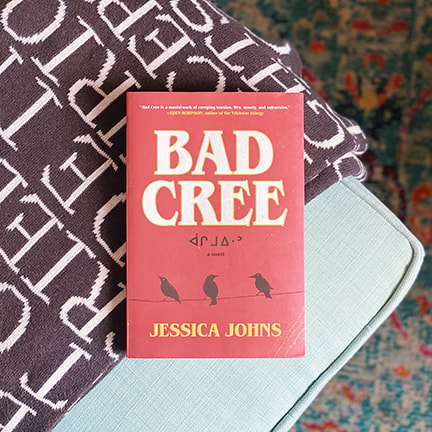
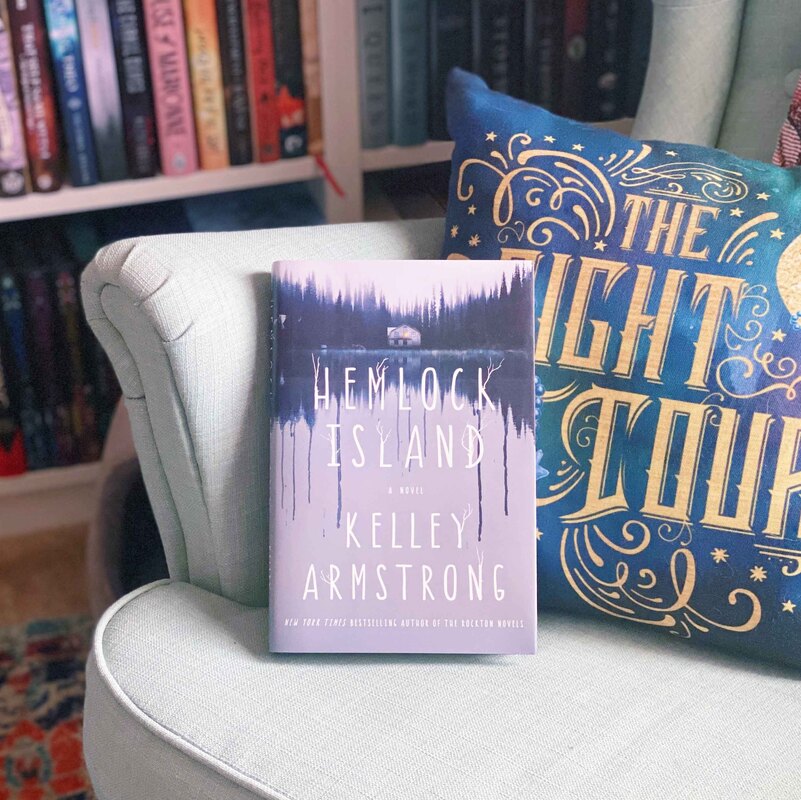
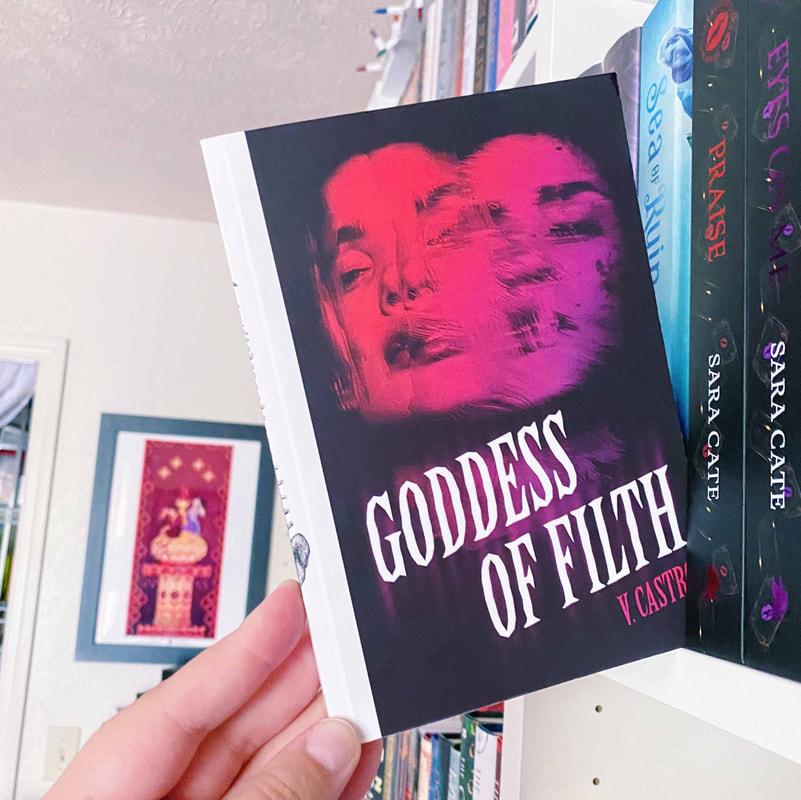
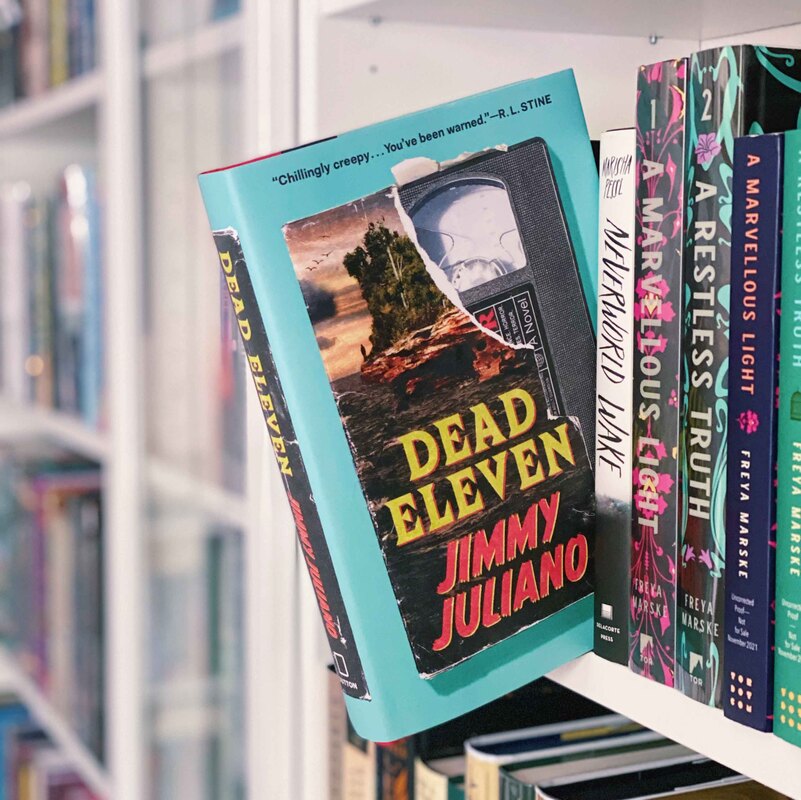
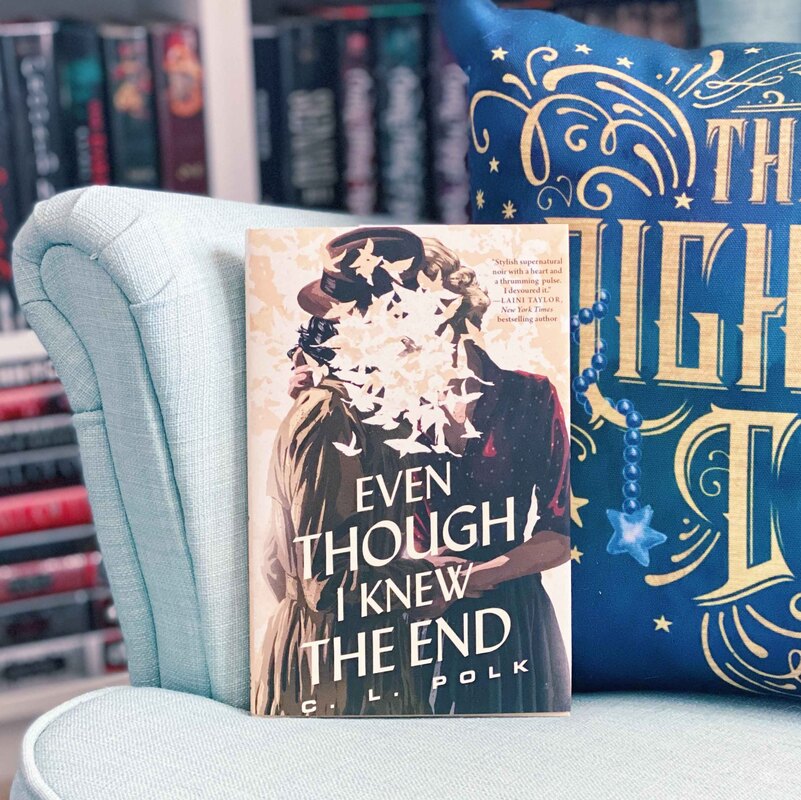

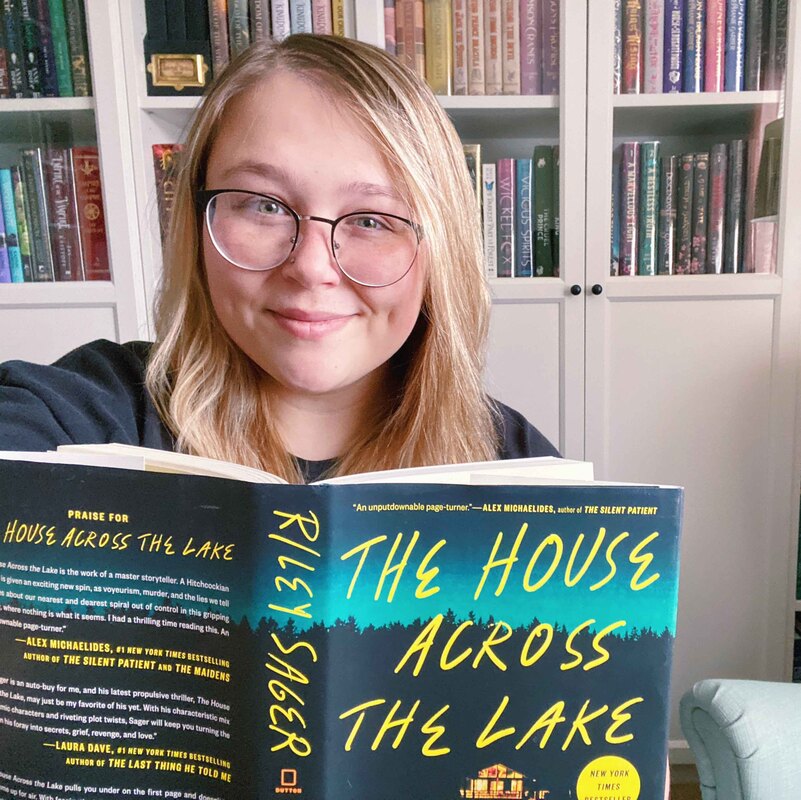
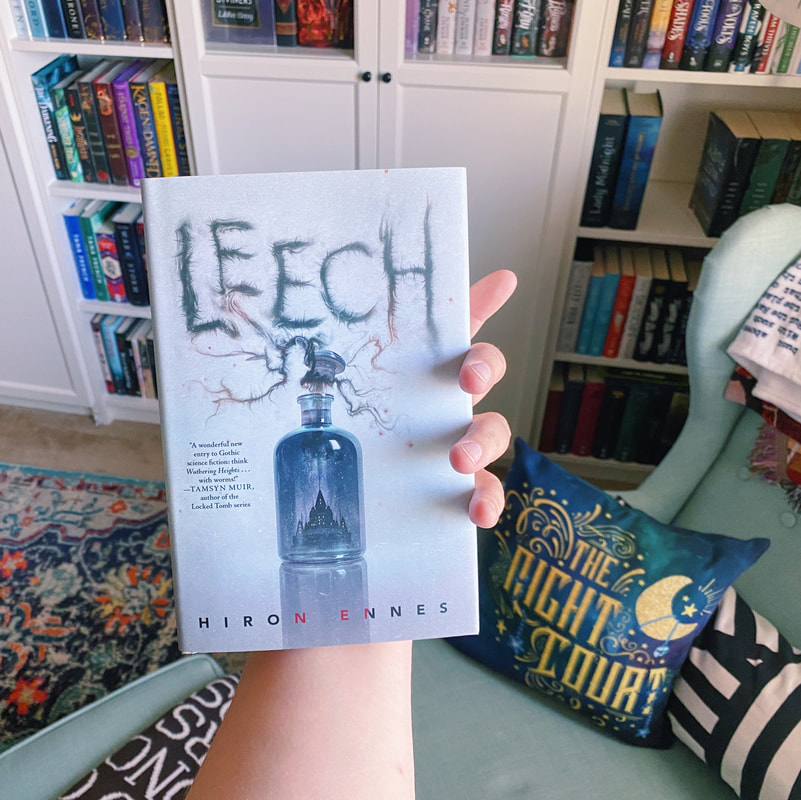
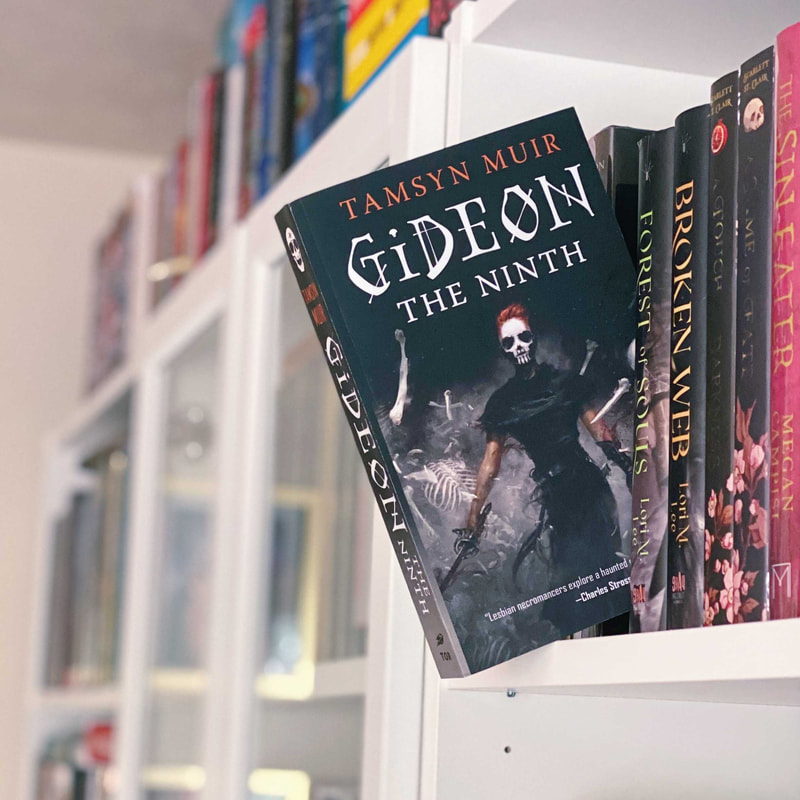
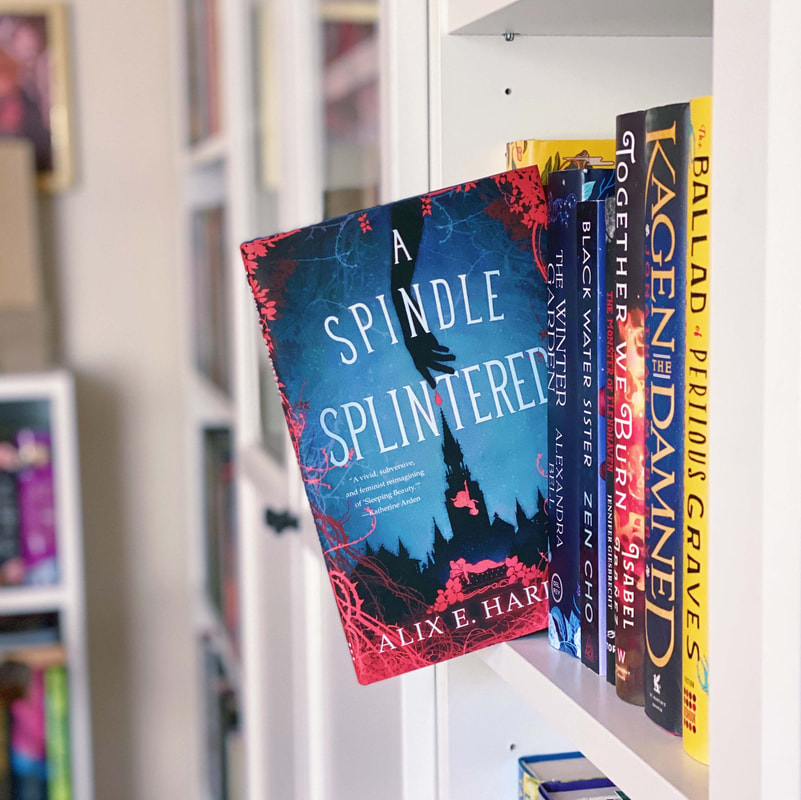

 RSS Feed
RSS Feed
